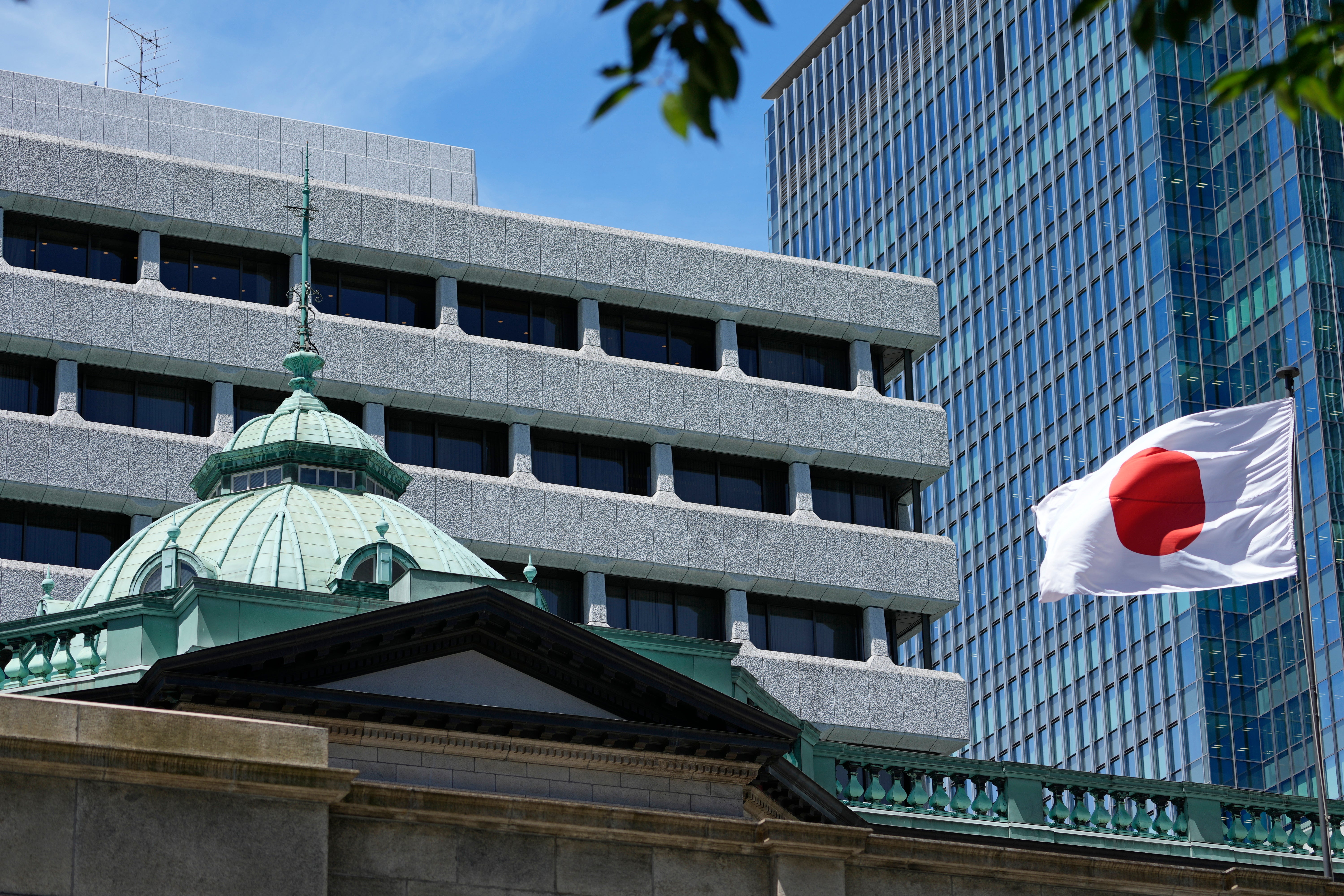Bank of Japan raises its key interest rate, aiming to curb yen's slide against the dollar
The Bank of Japan has raised its key interest rate to

Your support helps us to tell the story
From reproductive rights to climate change to Big Tech, The Independent is on the ground when the story is developing. Whether it's investigating the financials of Elon Musk's pro-Trump PAC or producing our latest documentary, 'The A Word', which shines a light on the American women fighting for reproductive rights, we know how important it is to parse out the facts from the messaging.
At such a critical moment in US history, we need reporters on the ground. Your donation allows us to keep sending journalists to speak to both sides of the story.
The Independent is trusted by Americans across the entire political spectrum. And unlike many other quality news outlets, we choose not to lock Americans out of our reporting and analysis with paywalls. We believe quality journalism should be available to everyone, paid for by those who can afford it.
Your support makes all the difference.The Bank of Japan raised its key interest rate Wednesday to about .25% from zero to about 0.1%, acting to curb the yen’s slide against the U.S. dollar.
The move was widely expected, and the yen gained sharply against the dollar ahead of Wednesday’s decision, trading at 152.75. But the dollar rebounded slightly after the decision, to 153.17 yen.
Share prices in Tokyo slipped 0.2% after the decision, to 38,463.18 after the decision.
The central bank has kept interest rates near or below zero for years, seeking to spur inflation in hopes that would sustain stronger growth for one of the world’s largest economies.
That strategy has proven controversial. It did help to end a prolonged bout of deflation, or falling prices. But since wages failed to keep pace with price increases, consumers have tended to spend less rather than more.
Still, the bank said conditions warranted a change. A weak yen has pushed prices in Japan higher since it makes imported gas, oil and other necessities more expensive. The main index of inflation has exceeded the BOJ’s target of about 2% for months.
“Inflation expectations of firms and households have risen moderately,” the BOJ said in its policy statement. “The year-on-year rate of change in import prices has turned positive again, and upside risks to prices require attention.”
The ultra-lax monetary policy also involved massive central bank purchases of Japanese government bonds and other assets to inject cash into the economy. The BOJ has been moving toward unwinding that stance but was wary of stifling growth by raising the cost of borrowing.
The central bank shifted away from a negative policy rate only in March, raising the overnight call rate for banks to 0.1% from minus 0.1%.
The dollar’s gains have reflected high interest rates in the United States, where the Federal Reserve is forecast to cut its main rate in September and to hold steady at a policy meeting later Wednesday.
The Bank of England also was expected to issue a rate decision later Wednesday.